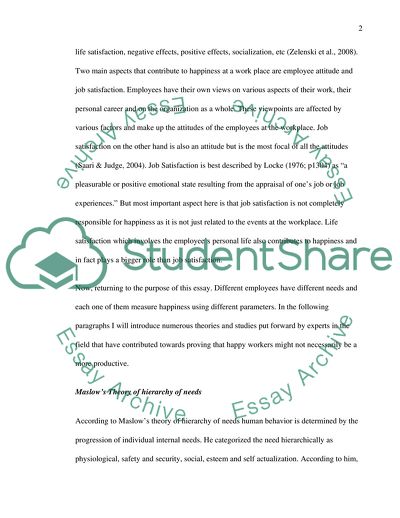Cite this document
(Attitudes and Job Satisfaction Essay Example | Topics and Well Written Essays - 1500 words, n.d.)
Attitudes and Job Satisfaction Essay Example | Topics and Well Written Essays - 1500 words. https://studentshare.org/human-resources/1752089-assignment-writing-seminar-attitudes-and-job-satisfaction-is-a-happy-worker-necessarily-a-productive-worker
Attitudes and Job Satisfaction Essay Example | Topics and Well Written Essays - 1500 words. https://studentshare.org/human-resources/1752089-assignment-writing-seminar-attitudes-and-job-satisfaction-is-a-happy-worker-necessarily-a-productive-worker
(Attitudes and Job Satisfaction Essay Example | Topics and Well Written Essays - 1500 Words)
Attitudes and Job Satisfaction Essay Example | Topics and Well Written Essays - 1500 Words. https://studentshare.org/human-resources/1752089-assignment-writing-seminar-attitudes-and-job-satisfaction-is-a-happy-worker-necessarily-a-productive-worker.
Attitudes and Job Satisfaction Essay Example | Topics and Well Written Essays - 1500 Words. https://studentshare.org/human-resources/1752089-assignment-writing-seminar-attitudes-and-job-satisfaction-is-a-happy-worker-necessarily-a-productive-worker.
“Attitudes and Job Satisfaction Essay Example | Topics and Well Written Essays - 1500 Words”. https://studentshare.org/human-resources/1752089-assignment-writing-seminar-attitudes-and-job-satisfaction-is-a-happy-worker-necessarily-a-productive-worker.


